Truthdigger of the Week: Baltimore Mayoral Candidate DeRay Mckesson
The Black Lives Matter activist (at right in photo)—whose political campaign is off to an attention-grabbing start—seeks to tackle the issues of police brutality and criminal justice through education and employment. The Black Lives Matter activist (at right in photo)—whose political campaign is off to an attention-grabbing start—seeks to tackle the issues of police brutality and criminal justice through education and employment.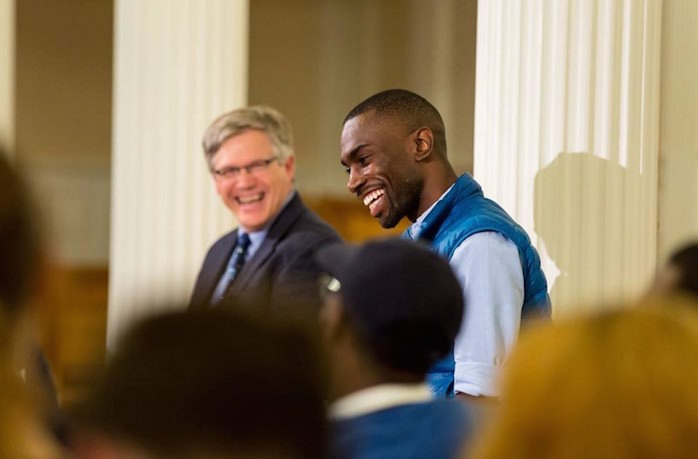
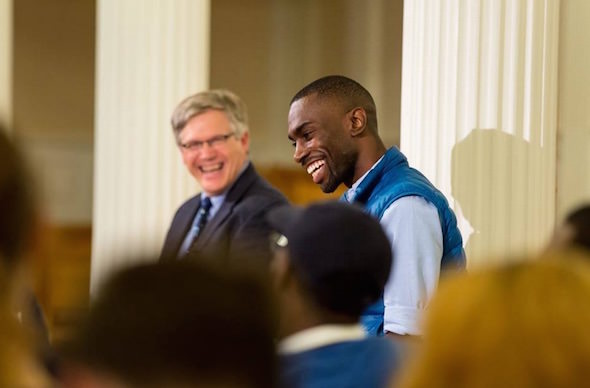
derayformayor.com
DeRay Mckesson, a 30-year-old activist and educator who is one of the most prominent faces of the Black Lives Matter movement, is running for mayor of Baltimore in a race shadowed by the death last year of Freddie Gray, a young black man in police custody.
Baltimore’s primary will take place in April, about a year after Gray, 25, died after being injured in a moving police van. According to a study that tallied 1,140 deaths last year at the hands of law enforcement officers, young black men are nine times more likely than other Americans to be killed by police officers, in a nation where police kill more people in a few days than some other countries do in years. For example, in the first 24 days of 2015, police in the U.S. fatally shot more people than police did in England and Wales combined in the past 24 years. And almost no other U.S. city knows the impact of police brutality quite like Baltimore. In fact, since 2010 the city has spent about $12 million in police misconduct cases to settle with victims or their families.
In August 2014 when Mckesson, who was working as a school administrator in Minnesota, heard about the fatal shooting of Michael Brown by police Officer Darren Wilson in Ferguson, Mo., he traveled there and quickly become one of the most visible commenters on the protests.
“I went to Ferguson initially to bear witness — to compare what I was seeing on TV and Twitter with what was happening in person,” he recounted in a recent interview. “I became a protester when I got tear-gassed for the first time, for simply demanding justice regarding the murder of Mike Brown. And you know, it was illegal to stand still [in Ferguson] during the fall of 2014.
“I’d never experienced the depths of a corrupt system like I had in those early days last fall — it simply wasn’t the America that I thought I knew. In those moments, I made a commitment to confront and disrupt until we are able to build equitable systems and structures that support life, and until we are able to end police violence.”
Because of Black Lives Matter, police brutality against blacks has become a pivotal national issue, with protests by the movement forcing Democratic presidential candidates Bernie Sanders and Hillary Clinton to confront questions of state violence and racial injustice. As the result of protests during both candidates’ campaigns, they have held meetings with Black Lives Matter activists, including Mckesson.
In a recent open letter to announce his mayoral candidacy, Mckesson emphasized “that issues of safety are more expansive than policing, and that to make the city as safe as we want it to be, we will have to address issues related to job development, job access, grade-level reading, transportation, and college readiness, amongst others.”
In fact, what may define his platform probably won’t be policing and criminal justice at all, but education. On Friday he released parts of his policy strategy, which includes expansion of full-day, public pre-kindergarten to enroll every low-income 3- and 4-year-old in Baltimore; the creation of “literacy-rich environments and programming … that support every young child’s early exploration and development”; establishing full academic scholarships for low-income graduates of the city’s public schools; and the “radical transformation of Baltimore City Community College into an engine of opportunity for city residents.” As Rachel M. Cohen writes in Slate, “It’ll be where his campaign intersects with the school-reform movement, and specifically how local education politics rub up against his national ties, that could really shake things up.”
“For our kids to go to school, they must be alive and for adults to work they must not be in jail,” states Mckesson’s platform, which also calls for a $15 minimum wage and a state-subsidized, transitional work program “to build skills and establish a work history for adults living in poverty and citizens returning from incarceration,” making use of the Maryland law that prohibits employers from inquiring about criminal history on job applications.
Mckesson’s campaign has raised over $77,000 in nine days through a crowdfunding site, and his mayoral run has captivated the sort of attention, including an appearance on “The Late Show With Stephen Colbert” (see clip below), that’s likely to make his rivals nervous. However, he faces an unenviable array of challenges, from criticism by fellow Black Lives Matter activists who argue that he lacks experience working with communities he now seeks to lead, to the fact that he is entering a contest that now includes 29 candidates.
“The reality is, people,” he said in a recent interview, “I’ve run for what? Five days or something? And people are expecting the world. And we plan to deliver it.”
Win or lose, the idealism and energy that our Truthdigger of the Week, DeRay Mckesson, brings to Baltimore’s mayoral race is sure to make a positive difference.
With an uncertain future and a new administration casting doubt on press freedoms, the danger is clear: The truth is at risk.
Now is the time to give. Your tax-deductible support allows us to dig deeper, delivering fearless investigative reporting and analysis that exposes what’s really happening — without compromise.
Stand with our courageous journalists. Donate today to protect a free press, uphold democracy and unearth untold stories.

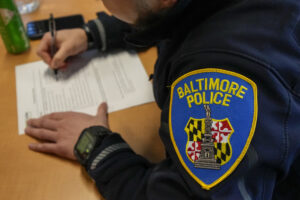
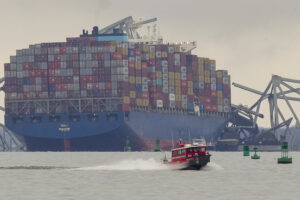
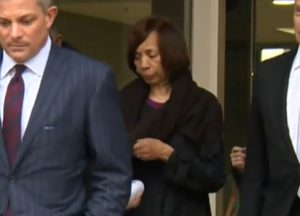
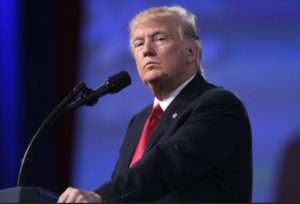
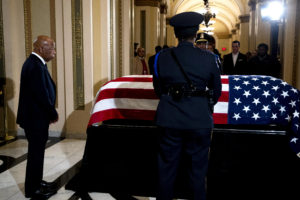
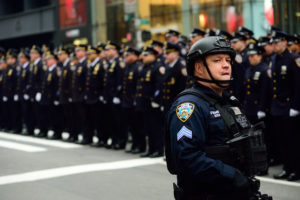


You need to be a supporter to comment.
There are currently no responses to this article.
Be the first to respond.